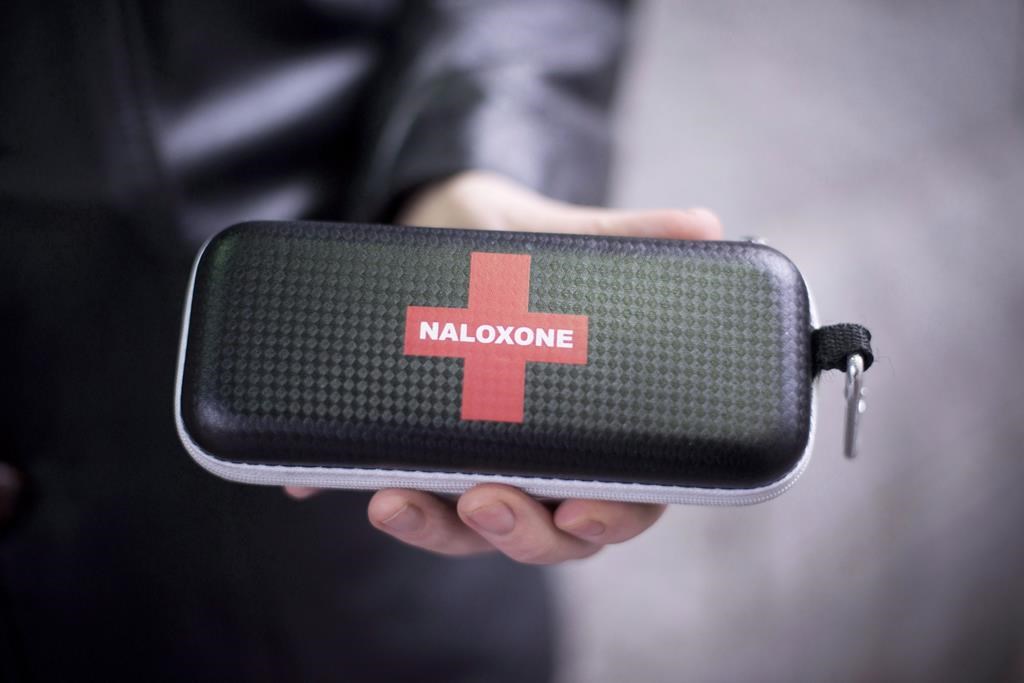Interior Health is offering free one-hour presentations about Naloxone kits in Vernon.

Anyone interested in learning how to use a Naloxone kit, an opioid antidote that can reverse the potentially fatal effects of an overdose, can join a class at the Vernon Public Library on the first Wednesday of every month at 7 p.m.
Participants will learn how to spot the signs of an overdose and how to administer Naloxone, and everyone who completes the class will take home one of these life-saving tools. Global Okanagan had the chance to take part in an information session hosted at the library on Thursday by overdose prevention nurse Kat Moore, and peer coordinator and overdose prevention site clinician, Keri Locheed.
Signs of an overdose:
- Person appears asleep and is hard to wake up
- Making choking, gurgling or snoring sounds
- If not breathing, person may have blue fingertips or lips
- Cold, clammy skin
What to do:
- Stimulate: Try to wake up the individual by yelling or talking loudly, or approach them from the side and try to wake them physically
- Airway: Using the Naloxone kit gloves, look for anything blocking the airway inside the person’s mouth
- Ventilation: If still not breathing, use the one-way valve mask found in the naloxone kit to administer the person with one breath every five seconds
- Evaluate: If the person begins to breathe of their own, stop giving breaths. If person is still unable to breathe on their own, try to call someone over to assist with either providing breaths or preparing the Naloxone. If no one is around, remain on the line with 9-1-1 and continue giving breaths while preparing medicine
- Medication: Provide a dose of Naloxone. Doses can be provided once every three to five minutes. Be mindful not to give the person too much Naloxone if the person begins stirring or wakes up, as too much can cause withdrawal
- Evaluate and Support: Keep monitoring the person, giving them doses or breathes as needed until first responders arrive
In 2023, 2,511 people in B.C. have died as a result of an overdose – a new record for the province.
Since the province declared the toxic drug crisis a public health emergency in on April 14, 2016, over 14,000 deaths have been recorded as a result.
- RCMP arrests alleged hitmen accused of killing B.C. Sikh leader
- Fall COVID-19 vaccine guidelines are out. Here’s what NACI recommends
- Some 2019 candidates ‘appeared willing’ to engage with foreign interference: Hogue inquiry
- Thousands of Canada’s rail workers have a strike mandate. What happens now?




Comments